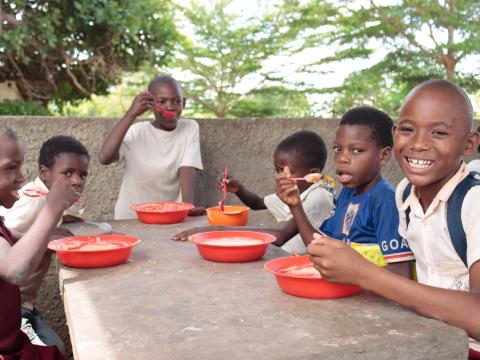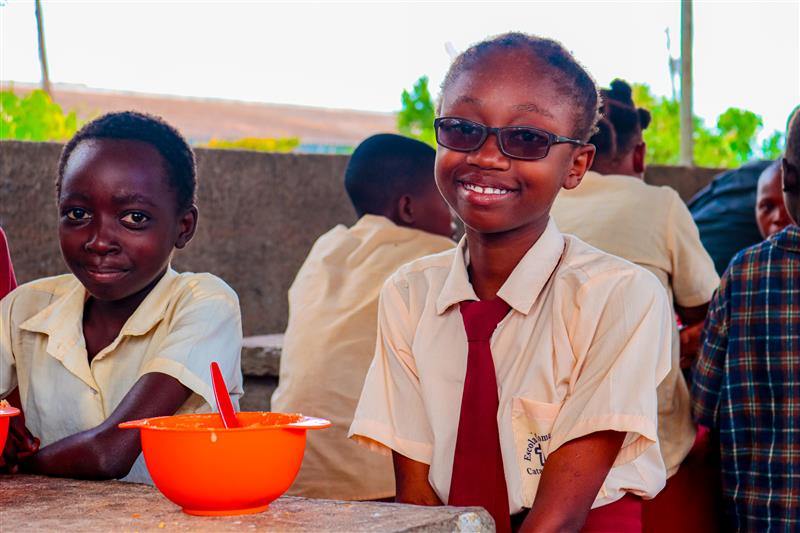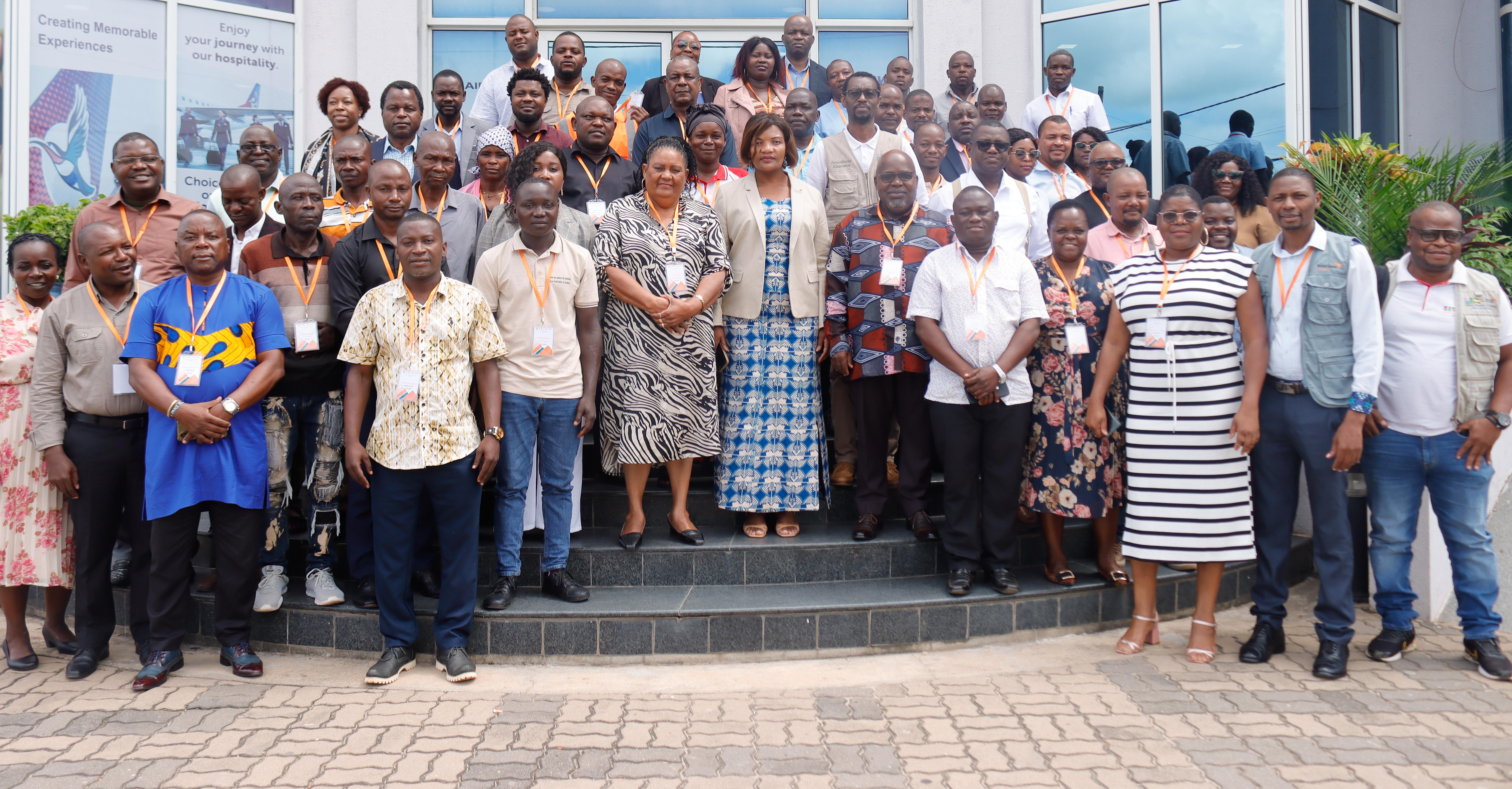School Feeding Project Serves 22 million Meals In Nampula Over Five Years

“Government, communities and partners advocate for continuity, innovation and sustainability of school feeding programs”.
Over the past five years, more than 22 million meals (22,667,173) have been served to over 93,000 primary school students in the districts of Muecate and Nacarôa, Nampula Province. This initiative aimed to improve school attendance, combat hunger, and prevent malnutrition among children.
These results were presented during the closing seminar of the “Educating Children Together – Phase III (ECT-3) project. The seminar provided a platform to share the program's impact and the lessons learned throughout its implementation.
School feeding was one of the key components of the ECT-3 project, which supported 160 primary schools across the two districts from October 2019 to September 2024. The project was led by World Vision Mozambique (WV-Moç), in partnership with the Government of Mozambique.
The initiative was designed to improve students' reading and writing skills while also promoting health, nutrition, and healthy dietary practices. By enhancing the teaching and learning environment, the project aimed to make schools more attractive to children and their families.

For Maria, an 11-year-old from Nacarôa District, in Nampula, school meals are a source of energy and joy for her and her classmates.
"I enjoy my school meals because it keeps me going through the day, with energy, while I am in school, until the moment I return home. My colleagues also feel the same way. They like it. For some of them, for one reason or another, they may not have all their meals at home, but when the morning comes, they are motivated to go to school knowing for sure they will enjoy a nice hot plate of porridge," said Maria.
During the event, government representatives, community members, and partners united in advocating for the continuity, innovation, and sustainability of school feeding programs.
Anabela Munarapa, Head of the Department of Cross-Cutting Affairs at the Provincial Directorate of Education in Nampula, reaffirmed the government’s commitment to continuing the interventions initiated by the ECT-3 project.
“The government, at various levels, will continue to support schools and communities in the districts of Muecate and Nacarôa. Sustainability is essential for any project. For example, some schools are already preparing meals using locally sourced food. In addition, reading camp facilitators will be hired as literacy teachers, and teachers trained by the project will mentor new educators,” she affirmed during the seminar.
Lopes Muquera, Deputy Chief of Party for the ECT-3 project, emphasized that the conclusion of this phase marks the end of a 12-year journey spanning three phases (ECT I, II, and III), highlighting the continued commitment of World Vision, the government, partners, and donors to children’s well-being through school meal programs.

Key Achievements of the ECT-3 Project (2019–2024):
Over 25,000 children accessed mini school libraries established by the project.
Six water supply systems were constructed, 20 latrines installed, and 15 boreholes rehabilitated.
Deworming treatment was administered to 91,965 children in all 160 supported schools.
At least 1,960 community health volunteers (1,197 women and 765 men) were trained in child health and nutrition.
11.72 metric tons of fortified corn-soy blend (CSB+) were distributed to 6,172 pregnant and lactating women and children under five.
15,780 pregnant and lactating women and 25,733 children under five (13,736 girls and 11,997 boys) benefited from community-based nutrition interventions.
World Vision Mozambique implemented the ECT-3 project in consortium with the National School Feeding Program (PRONAE), the Civil Society Learning and Training Center (CESC), and the International Food Policy Research Institute (IFPRI). The project was funded by the McGovern-Dole International Food for Education and Child Nutrition Program of the USDA.
For more information, please contact:
1. Cremildo Cardoso, Monitoring and Evaluation Manager; +258 87 011 4968; cremildo_cardoso@wvi.org
2. Benjamim Capito, Communications Coordinator; + 258 87 205 4725; benjamim_Capito@wvi.org